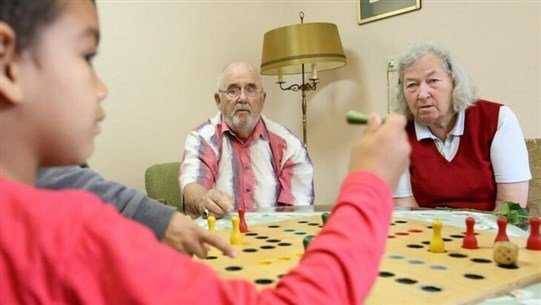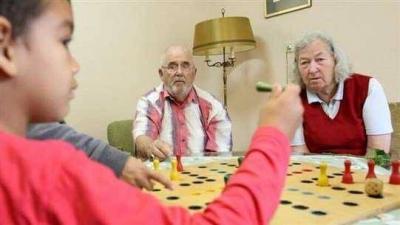A major review has concluded that the best way to protect against dementia is to keep the mind active by engaging in certain daily hobbies. The study found that individuals who read books regularly, play musical instruments, or keep personal diaries have a 23% lower risk of developing this condition. Additionally, an analysis of dozens of studies involving two million middle-aged and elderly people showed that physical activity was the second best thing for maintaining brain health. The study indicated that individuals with vibrant social lives are 7% less likely to develop dementia compared to those who are isolated. Researchers noted that joining clubs, volunteering, spending time with friends and family, or attending religious events had a positive impact.
The lead author, Professor Lin Lu from Peking University, stated: "This meta-analysis suggests that activity has benefits, and there are many activities that can easily be integrated into daily life that may be beneficial for the brain."
Approximately 900,000 people in the UK live with dementia, and rates are expected to rise with an aging population. According to the study, the number of people with memory loss in the US is about seven times higher. There is no cure for this disease, which means that doctors can only prescribe medications that alleviate its symptoms. Physicians recommend following a balanced diet and engaging in regular exercise, as evidence shows that both can help prevent dementia.
The meta-analysis included a review of 38 studies from around the world involving 2.1 million people who did not have dementia, ranging in age from 45 to 93 at the start of the study. Participants were then monitored for periods ranging from 3 to 44 years, during which 74,700 individuals developed dementia. Information about their hobbies was obtained through questionnaires or interviews, and recreational activities were defined as those in which individuals participate for enjoyment or well-being, categorized into mental, physical, and social activities.
Mental activities included reading or writing for pleasure, watching television, listening to the radio, playing games or musical instruments, using computers, and engaging in crafts. Researchers stated that these hobbies help maintain and improve memory, processing speed, thinking, and reasoning skills, while preventing cognitive decline. However, they noted that results regarding television watching remain inconclusive, with previous studies indicating that people are more prone to the disease if they watch too much television, as their minds remain inactive for extended periods.
Physical activities in the studies included walking, running, swimming, cycling, using exercise equipment, working out, yoga, and dancing. Exercise has been shown to maintain heart health and ensure proper blood circulation.
Heart problems can increase the risk of dementia by cutting off blood flow to the brain, starving nerve cells of oxygen, and accelerating cell death. Attending classes, joining social clubs, volunteering, visiting relatives or friends, and participating in religious activities were among the most common social activities in the analysis.
Researchers believe that spending time with others may protect the brain by enhancing social connections and emotional stimulation, while reducing the risks of depression and stress—both of which are risk factors for dementia. Professor Lu, a neuroscientist at the Chinese University, commented: "Previous studies have shown that recreational activities are associated with various health benefits, such as a lower risk of cancer, reduced atrial fibrillation, and a person's perception of their well-being."
The study noted conflicting evidence regarding the role of recreational activities in dementia prevention, finding that activities like crafting, exercising, or volunteering were linked to a reduced risk of developing dementia. He stated that future studies should include a larger group of people and monitor participants for a longer period "to uncover more links between recreational activities and dementia."




